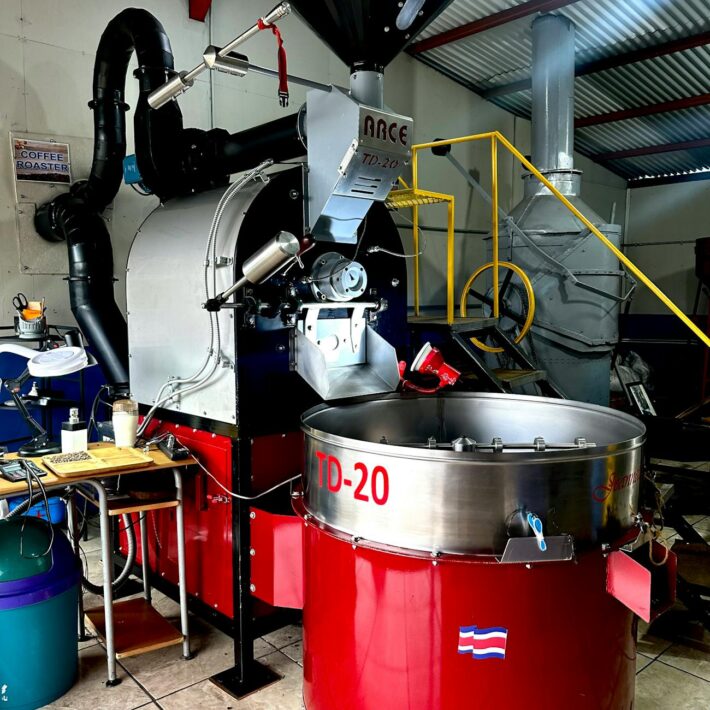Shared Kitchen Business Ideas to Start in 2024

Contents
Shared Kitchen Business Ideas to Start in 2024
The culinary world is evolving, and shared kitchens are at the forefront of this transformation. These innovative food spots have risen in popularity due to their ability to make culinary entrepreneurship more accessible. They provide the perfect environment for small business owners and budding entrepreneurs to thrive without the high overhead typically associated with starting a full-scale restaurant. Let’s explore what shared kitchens are and the plethora of business opportunities they present.
Overview of Shared Kitchen Concepts
Definition and Purpose
Shared kitchens are professional-grade kitchen spaces that multiple food businesses can rent out for their culinary activities. They serve food entrepreneurs by offering essential kitchen facilities without the prohibitive costs of owning a kitchen space. With these setups, individuals can cook, prepare, and sell food while sharing the space with like-minded culinary innovators.
Market Trends
The rising trend in food delivery services, the growth of the gig economy, and the demand for unique culinary experiences support the rapid growth of shared kitchen spaces. More consumers today prefer convenience and diverse food options, making it an excellent time for entrepreneurs to jump on the trend.
Types of Shared Kitchen Business Ideas
There are numerous business opportunities available for those looking to leverage shared kitchens. Here are more than 15 practical options that can help you kickstart your entrepreneurial journey.
Commissary Kitchen
A commissary kitchen acts as a hub for multiple food businesses, offering essential equipment and space. Entrepreneurs can prepare meals without needing a dedicated kitchen. This model allows for scaling operations while managing costs effectively. Here are the key steps for starting a commissary kitchen.
Ghost Kitchen
Ghost kitchens focus solely on food deliveries and pick-up orders without needing a storefront. Set up in a shared kitchen, they eliminate the distractions of traditional dining services, streamlining operations to meet the ever-increasing demand for delivery.
Food Truck Shared Kitchen
Food trucks need facilities for food preparation, storage, and cleaning. A shared kitchen provides the perfect solution, allowing food truck owners to efficiently prepare meals while saving on costs.
Catering Services
Shared kitchen spaces can serve as a base for catering businesses. With ample storage and workspace, caterers can create impressive menus for events without high startup costs for equipment.
Meal Prep Services
As more consumers opt for health-focused meal delivery options, entrepreneurs can use shared kitchens to prepare and deliver nutritious meals weekly, catering to busy lifestyles.
Baking Studio
A shared baking studio offers the perfect workspace for artisan bakers looking to create delicious pastries, cakes, and baked goods. These specialized kitchens come equipped with essential baking tools and equipment.
Cooking Classes
Shared kitchens can also double as venues for cooking classes, attracting food enthusiasts eager to learn new culinary skills. Provide various classes focused on differing cuisines and skill levels.
Pop-Up Restaurants
Pop-up restaurants offer an exciting way to experiment with culinary concepts. A shared kitchen provides the flexibility and space needed to host temporary dining experiences while minimizing financial risk.
Specialty Food Production
Shared kitchens can be excellent for producing specialty foods. From sauces to jams, entrepreneurs can create and sell unique culinary products while sharing resources with others in the industry.
Kombucha or Craft Beverage Production
Kombucha and craft beverages have surged in popularity. Use shared kitchen spaces to brew kombucha or craft artisanal beverages, tapping into the growing health-conscious consumer base.
Herbal or Spiced Products
Create herbal blends, spice mixes, or infused oils in a shared kitchen. This niche market offers a range of high-quality products for foodies and home cooks alike.
Nutrition Consultation Space
Nutritionists can utilize shared kitchen facilities to meet clients, create meal plans, and conduct workshops on healthy cooking and diet planning.
Gourmet Dog Treats
Catering to pet owners, starting a gourmet dog treat business can fill a unique niche. Shared kitchens offer necessary space and equipment to create high-quality pet snacks.
Vegan/Gluten-Free Options
With the rising demand for vegan and gluten-free products, shared kitchens enable entrepreneurs to develop these specialized offerings without massive upfront investments.
Starting Your Shared Kitchen Business
Starting a shared kitchen business requires careful planning and execution. Here’s how to get started.
Research and Planning
Conduct in-depth market research to identify needs and gaps in your target demographic. Create a business plan outlining key objectives, costs, and growth strategies.
Legal Considerations
Register your business and familiarize yourself with all the necessary health regulations. Compliance with local health codes is vital to maintaining your kitchen's licenses.
Designing Your Space
When designing your shared kitchen layout, aim for efficiency. Consider common kitchen elements like workflow, preparation areas, storage, and equipment accessibility.
Marketing Your Shared Kitchen
Use a combination of local marketing strategies, social media campaigns, and partnerships with food entrepreneurs to build your clientele. Highlight the benefits of your shared kitchen in your marketing materials.
Establishing Brand Identity
As a small business owner, creating a strong brand identity is crucial. Invest time in logo design with relevance to your shared kitchen's vision (Logo Ideas). Your branding should resonate with potential clients to leave a lasting impression.
Challenges in the Shared Kitchen Business
Even with great potential, shared kitchen spaces face several challenges that entrepreneurs should be prepared for.
Managing Diverse Clients
While diversity in clients can be beneficial, managing multiple culinary businesses at once can be challenging. Foster clear communication and set guidelines to ensure smooth operations.
Compliance with Health Regulations
Given the shared nature of the kitchen, ensure all clients adhere to strict health regulations. Developing thorough compliance checks can help maintain a clean and safe cooking environment.
Conclusion
Starting a shared kitchen business in 2024 presents an exciting opportunity for entrepreneurs. Whether you're interested in running a ghost kitchen, offering cooking classes, or trying your hand at gourmet dog treats, shared kitchens are the perfect starting point for various culinary ventures. With a clear plan, creativity, and hard work, you can thrive in this evolving food landscape. Embrace the possibilities and make your culinary dreams a reality!

As our Chief SEO & Branding Strategist, Robert Ellison is a digital marketing visionary with over 25 years of experience transforming brands through smart, data-driven SEO and impactful storytelling. Known for his expertise in aligning technical SEO with authentic brand narratives, he leads our team in creating strategies that boost search rankings while building strong, sustainable brand identities. A trusted advisor and frequent industry speaker, Robert combines deep technical knowledge with creative insight, helping our clients not only reach the top of search results but also genuinely connect with their audiences.








